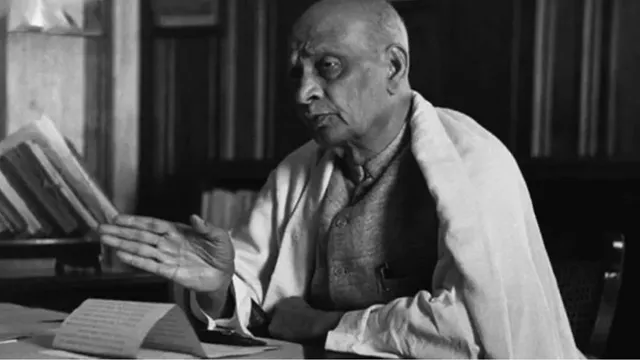- By Iram Hussain
- Thu, 31 Oct 2024 09:46 AM (IST)
- Source:JND
Sardar Vallabhbhai Patel's birth anniversary is celebrated as National Unity Day or Rashtriya Ekta Diwas every year on October 31st. This day honours his pivotal role in uniting India's 565 princely states after independence in 1947, earning him the title "Iron Man of India". As India's first Home Minister, Patel played a crucial role in shaping the modern Indian nation, advocating for national unity and equality among citizens.
His legacy continues to inspire national unity and solidarity. On this occasion, let's look at some surprising yet interesting facts about this visionary leader of the nation.
Facts About Sardar Vallabhbhai Patel
Sardar Vallabhbhai Patel was born into a prosperous landowning farmer's family in Gujarat.
Sardar Vallabhbhai Patel, a prominent leader of the Indian National Congress played a crucial role in India's struggle for independence. After India gained freedom in 1947, he became the country's first Deputy Prime Minister.
He made history as India's first Home Minister, serving from 1947 to 1950 and simultaneously held the position of Deputy Prime Minister.
At 36, Sardar Vallabhbhai Patel embarked on a journey to England, enrolling in a three-year law course at London's prestigious Inns of Court Middle Temple.
Sardar Vallabhbhai Patel practised law at Godhra while borrowing books from senior lawyers. Demonstrating exceptional dedication, he completed his law course in just 30 months, instead of 36 and qualified as a barrister.
Sardar Vallabhbhai Patel's journey into politics was sparked by a pivotal meeting with Mahatma Gandhi in Godhra. Initially uninterested in politics and Gandhi's principles, Patel's encounter led him to join the Indian National Congress. He soon became secretary of the Gujarat Sabha, transforming it into a Congress stronghold.
Responding to Gandhi's call, Sardar Patel resigned from his lucrative law practice to join the Kheda Satyagraha. He fought for tax exemptions during the devastating plague and famine, exemplifying selfless leadership and commitment to India's freedom struggle.
He also championed social reform in Gujarat and beyond, tirelessly working to eradicate alcohol consumption, untouchability and caste discrimination. He also advocated for women's empowerment and emancipation.
In 1923, Sardar Patel led the Nagpur Satyagraha against the British ban on hoisting the Indian flag, stepping in after Mahatma Gandhi's imprisonment and championing India's freedom.
He embarked on a tour across western India while mobilising a staggering 300,000 members and raising an impressive amount exceeding Rs 15 lakhs in funds.

